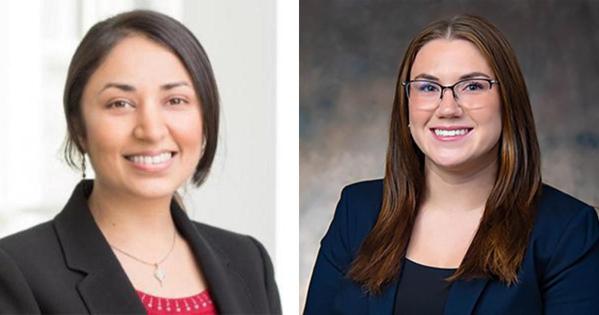Did Medicaid Expansion Ease COVID Suffering Among Low-Income Populations?

The social impacts of COVID-19 prompted social scientists to research issues related to, and emerging from, the pandemic. This resulting body of literature includes a new study by SPA researchers on the sustaining value of insurance for low-income Americans, aimed at helping policymakers better prepare for future health crises.
SPA Assistant Professor Aparna Soni and Alexandra Rakus (SPA/PhD ’24) conducted an analysis of the wellbeing of low-income adults during the pandemic in states with expanded public health insurance. The results, published in Health Services Research, indicate that Medicaid had a protective effect on low-income people’s health outcomes during the first year of the pandemic. It underscores the benefits for individuals in the 39 states and the District of Columbia that accepted the federal government’s offer for insurance expansion under the Affordable Care Act (ACA).
The researchers used nationally-representative survey data from the 2016 through 2020 Behavioral Risk Factor Surveillance System. It included adults aged 19-64 with household income below 138% of the federal poverty level, which was the target population of the Medicaid expansions, for a total sample of about 180,000.
“One benefit was that the data allowed us to look at all of the states rather than just a sample of the states,” said Rakus, who ran most of the preliminary data analysis. “Also, we had an opportunity to see how people's behavior regarding smoking and drinking were affected during the pandemic by having access to Medicaid.”
When compared to earlier years in the sample, in 2020, people in expansion states had better self-assessed health, lower rates of smoking and heavy drinking, and higher flu vaccination rates than those in non-expansion states. These benefits were particularly salient for Black and Hispanic people, helping reduce COVID-related health disparities in those populations.
“Having access to health insurance gives people resources to understand more about protecting their own health and making healthy choices,” Rakus said.
This results were no surprise to Soni, who, even before the pandemic, found evidence that Medicaid expansion improved financial outcomes for low-income people, which can affect health.
“When the pandemic and recession hit, the impact of the recession would have been a little bit softer for low-income people in expansion states,” Soni said. “If they had slightly increased financial security and invested in healthy behaviors during the pandemic, then we would expect to see this kind of divergence.”
Soni continued that the results, which show that investments in public health through expanding Medicaid may shield low-income populations from some impacts of public health emergencies, give states still considering Medicaid expansion another reason to participate.
“Millions of adults are still uninsured, and people who are uninsured are more likely to have underlying health conditions or to be essential workers who don’t have insurance,” Soni said. “These populations are at higher risk of facing severe illness from COVID, or from future pandemics or infectious disease outbreaks. Our study showed that Medicaid expansion could be one way to protect these particularly vulnerable populations.”